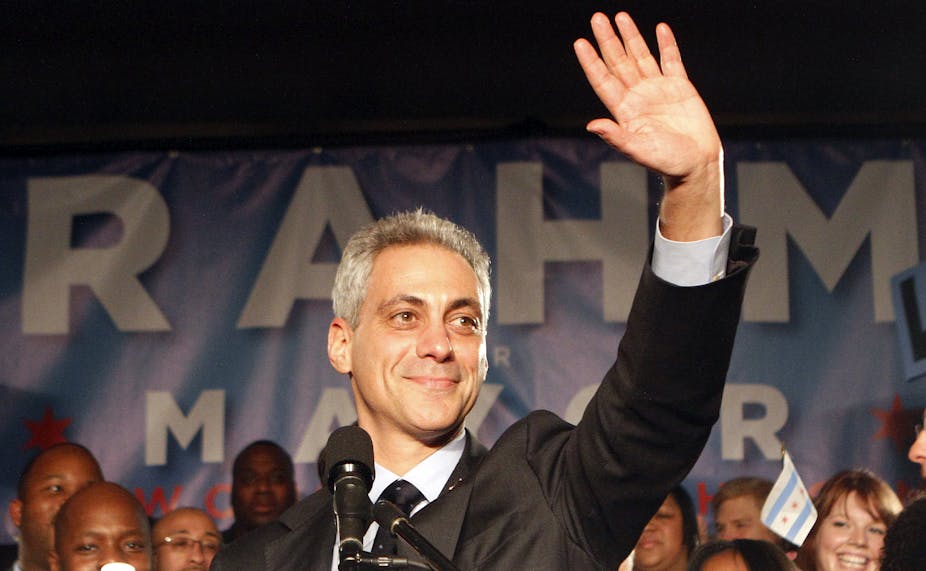The runoff election for mayor of this solidly blue city pitted a hyper-connected and fully financed centrist in incumbent Rahm Emanuel against a redistributive-minded liberal challenger in Jesus “Chuy” Garcia, a Cook County Commissioner.
The centrist won, which is a big deal for Chicago. It is not, however, a harbinger of things to come for the national Democratic Party.
Supporters of Hillary Clinton may be pleased to find a like-minded ally in the next mayor of Chicago. But they should not find comfort in Chicago’s decision to forsake the far left wing of the Democratic Party. The prospects of a liberal stalwart like Massachusetts Senator Elizabeth Warren seizing the Democratic nomination are small, but they are in no way diminished by today’s vote.
Due to a curious mixture of racial alliances and identities, certain features of the Chicago mayoral election simply defied national trends. Emmanuel is a close ally of the Barack Obama, whose home is on the South Side of this city. Meanwhile Garcia, who hails originally from Durango, Mexico, lives in the heavily Hispanic Pilsen district. Perhaps for these reasons, the centrist candidate won a majority of the urban African-American vote, the country’s most left-leaning constituency, whereas the liberal candidate found his base in a Latino constituency whose allegiances to the Democratic Party are not nearly so strong – a fact that has attracted the eyes of prospective Republican presidential candidates, especially former Florida Governor Jeb Bush.
Emanuel faces a broken city
The bigger reason why the Democratic Party may not follow Chicago, however, has less to do with electoral politics and more to do with finances. Chicago is a broke city in a broke state. It is running an operating debt in the hundreds of millions of dollars. It owes tens of billions of dollars in pension liabilities and other obligations. The city’s bond rating idles at the second lowest investment grade. The local school board, which constitutes the second largest borrower in the city, has a credit rating a notch above junk.
Chicago has no extra money to redistribute. The relevant question for the Democratic mayor in his second term is not what new welfare initiative to fund or what new education initiative to launch. Rather, the relevant question – and “relevant” doesn’t begin to capture the urgency – is what avenue, other than shuttering 50 public schools, is going to rescue Chicago from insolvency.
In this environment, a progressive like Chuy can’t win. But nationally, where government finances operate on sounder footings, a debate is still to be had between prospective liberal and centrist Democratic candidates.

